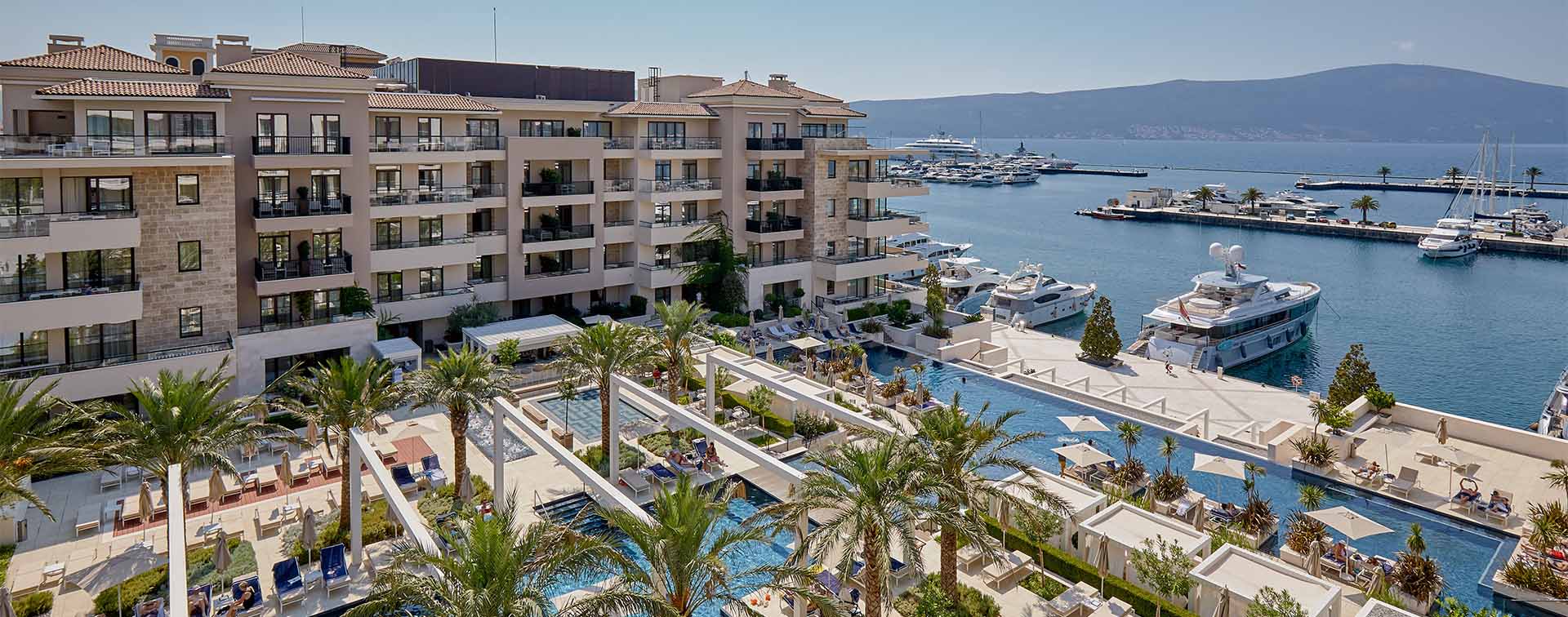
Dominic Volek is Group Head of Private Clients and a Member of the Executive Committee of Henley & Partners.
We are living through a time of exponential change — boundaries are being pushed to the limit. Vacation homes are doubling up as primary residences, which in turn are having to accommodate workspaces for business and homeschooling. Looking at the bigger picture, for many, the ties that traditionally attached us to our countries of birth are loosening out of necessity. People are choosing to relocate to destinations that offer more space, stability, and opportunity. Why not move to somewhere with a better lifestyle if you can? With investment migration, encompassing residence and citizenship by investment programs, you can — and if you opt to invest in real estate, the benefits are compounded.
International real estate has always been a reliable asset class for global investors due to its long-term staying power. Real estate–linked investment migration programs have the additional advantages of enhancing one’s global mobility through multiple passports and expanding your personal access rights as a citizen or resident of different jurisdictions, creating optionality in terms of where you and your family can live, work, study, retire and invest. The potential gains over the lifetime of the investment include the core value of the asset, rental yields, and global access as an ultimate hedge against market and political volatility.
With the rapid growth in global wealth, which has tripled since 2020, there is a growing pool of affluent investors. Many have become familiar with what investment migration has to offer, and demand for the programs, which provide individuals and families with additional residence and citizenship options in a range of attractive countries in return for donations or investment in funds, businesses, or real estate, has increased dramatically since the outbreak of the pandemic.

While not all programs have real estate options, the 16 featured in this new index do, and to date, real estate has been by far the most attractive investment migration option to our clients. At Henley & Partners, we see real estate-linked investment migration as a unique and unrivaled opportunity to acquire two desirable assets — access to multiple jurisdictions and international real estate — in just one transaction.
Citizenship by investment programs give you and your family the ability to settle and do business in your chosen country, with attractive additional benefits such as a better quality of life, top healthcare facilities and renowned educational institutions, and access to extensive business opportunities, expanded visa-free travel and more favorable tax laws. Many European residence by investment programs also enable you to access countries in Europe’s Schengen Area without a visa, which is useful for business and leisure travel. After a stipulated time of permanent residence, you can then apply for citizenship.
It’s also a great way of diversifying a variety of risks, as the option to relocate can help individuals secure their family’s wealth for future generations. If the political, tax, or public health backdrop changes in your home country, migration could even be the difference between life and death.
Some investors choose to contribute to a government-run fund to acquire residence or citizenship elsewhere. This may be a quick, relatively hassle-free option, but it does not confer many of the other advantages. The beauty of investing in real estate to gain residence rights or citizenship of another country is that it affords investors all of the classic benefits of owning real estate, and more.
Real estate is widely recognized as one of the most stable long-term investments, so investors are more than likely to break even and could turn a profit after just five years. And of course, owners can do as they wish with their properties in the meantime. They can live in them, use them as vacation homes, or rent them out to create an additional income stream. A rental income in a strong currency such as the euro could look particularly attractive to an investor from a country with a weaker currency.
People interested in investment migration have historically come from developing nations whose passports provide limited visa-free access. Barriers to travel make it difficult for people to relocate or do business, highlighting the essential role that investment migration programs play in expanding your global mobility. They’re also an attractive option for residents of politically volatile states, as the possibility to reside or have dual citizenship in a second country could prove invaluable if conditions in their home countries worsen.
However, since the outbreak of Covid-19, we have seen a huge increase in interest from holders of premium passports — in particular, residents of the EU, UK, and the USA. The pandemic has made many people in wealthy countries reflect on the benefits of having an alternative location to base themselves in or relocate to if necessary. The largely successful transition of most industries to remote work in the past two years has made it much easier for many people to live and work wherever they choose, as long as high-speed internet is available.
Previously deemed to be the reserve of the world’s elite, investment migration has become affordable for many more people in recent years, especially those based in countries with strong currencies. For example, you can acquire citizenship of Antigua and Barbuda, Dominica, or St. Kitts and Nevis in the Caribbean for a real estate investment of around USD 200,000. And in Europe, you can obtain permanent residence in Greece by investing in real estate with a minimum value of EUR 250,000 plus taxes. No physical residence is required, and the property may be sub-let. Holders of residence permits may apply for citizenship after seven years of lawful residence.
The Portugal Golden Residence Permit Program — the most popular choice among investors last year and top of the Global Residence Program Index in the Investment Migration Programs report — requires a minimum real estate investment of EUR 350,000 for the refurbishment of properties older than 30 years or in an area of urban regeneration, including the cost of renovations. The amount is reduced by 20% if the investment is in a low population density area.
At Henley & Partners we’ve helped a wide range of clients from around the world to acquire permanent residence and citizenship of alternative countries by investing in real estate.
Several South African clients, for instance, have bought property on the Greek islands. Many want to chase the sun and live there for part of the year and then earn a rental income in euros when they are back home. They are able to eventually apply for Greek citizenship, which would provide them with permanent access to the whole of the EU, but in the meantime, they can enjoy visa-free travel to Europe’s Schengen Area, avoiding the onerous and expensive visa application processes.
Others have opted for apartment in Portugal so that their child can live and study at universities across the EU in addition to enjoying visa-free Schengen Area access. By the time the student earns their master’s degree five years later, the whole family is eligible to apply for Portuguese citizenship.
Some of our older British clients buy property in Thailand so they can enjoy a better quality of life in their retirement, at a fraction of the cost of living in the UK. Others buy property in Europe to reclaim their membership of the EU in the wake of Brexit. Many US citizens and even some from Japan — which has had the strongest passport in the world for three years — opt for investment migration for tax optimization reasons.
While India does not permit dual citizenship, many wealthy Indian families take residence elsewhere so they can spread their wealth, tax liabilities, and opportunities across multiple territories. The grandparents might live in Thailand for its attractive and affordable lifestyle, the children might be in Europe taking advantage of the excellent education opportunities, while the family business may be based in Dubai for tax purposes. In short, alternative residence and citizenship can benefit the whole family.
Just 20 years ago, investment migration was seen as somewhat of an esoteric option reserved for the very wealthy and was even deemed to be unpatriotic in some cases. But that’s no longer the case. Many countries around the world now permit dual citizenship, and the concept has gained significant traction over the past decade. And it’s a buyers’ market, with many governments restarting, refining, and/or developing new investment migration options in the wake of Covid-19 as a means of generating debt-free liquidity.
Investment migration is the smart choice for both governments and global citizens — both as a source of opportunity and to mitigate against jurisdictional risk.